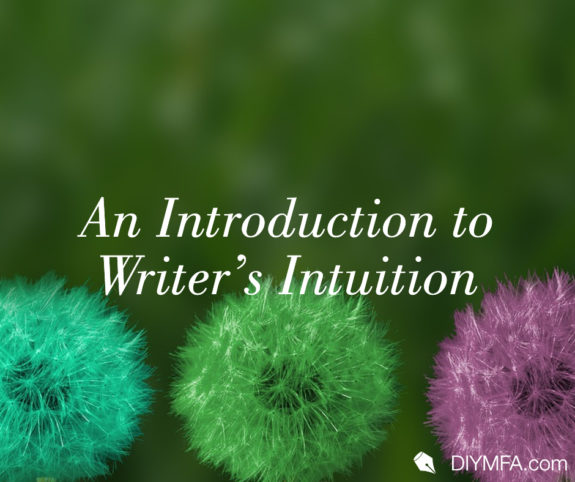Web Editor’s Note: Hey there word nerds! I’m so excited to introduce our newest columnist, Laura Highcove. Laura is a long time word nerd who will be sharing all about writer’s intuition. What’s that, you ask? Read on to find out about this powerful writing tool.
I wrote a book one time that contained a character whom I loved. I enjoyed how they interacted with the other characters, how they were developing as a character, and the mystery they added to the plot. At the same time I had this nagging feeling that they didn’t quite belong.
For months I convinced myself that I just needed to write more of the story and then their purpose would become clear. But that feeling didn’t go away, and I finally had to admit that the character didn’t belong in that book. So began the arduous task of removing them. Once they were gone, the story came together neatly and far more solidly, and I found myself wishing I had listened to my writer’s intuition from the beginning.
So What is Writer’s Intuition?
Writer’s intuition is an (often) unconscious knowledge that comes from experience. Many people have given many names to the same concept: a gut feeling, reading the room, thin slicing, or instinct. All of these things refer to the way the brain takes in information, checks it against what you already know, and gives you a conclusion faster and more completely than you can consciously.
With my superfluous character above, I could give you a whole slew of reasons they needed to be taken out of the book, as well as the same number of reasons to leave them in. I don’t know *how* my writer’s intuition knew the story would be better without them, but somehow I did know.
This is why you’ll often hear authors talk about how they fixed a broken plot or developed a character’s arc, yet when asked how they knew what changes to make, they can’t give a complete answer. The author knows because their writer’s intuition is taking all of their past experience and drawing a conclusion, and they’ve learned how to listen. If they do try to explain the reasons, it’s often impossible because it’s part of a huge wealth of experience only they have.
How Does One Get Writer’s Intuition?
The great thing is, you already have it. Just by being alive, existing in the world, and especially by reading, writing, and ingesting stories, you have your intuition about how stories, characters, and plots work. Which is good, because writer’s intuition is impossible to teach.
I know what you’re thinking. “If you can’t teach intuition, then what is this post for?” That is because while I can’t teach you writer’s intuition, I *can* show you how to teach yourself to develop it further and more intentionally.
What do you Mean ‘Teach Myself’?
With most skills and techniques, you follow a set of steps that will give you a distinct result. Unfortunately, (and fortunately) writer’s intuition is a collection of all of your experiences, even those not related to writing or stories. No one can teach you their writer’s intuition because they can’t give you their experiences. This is the same reason why no two people, even with the same idea, could possibly ever write the same book.
The most important thing for developing your writer’s intuition is becoming more consciously aware of it. Remember when I said your mind is drawing a whole bunch of conclusions subconsciously? It’s always doing that, and an important step in learning to develop your writer’s intuition is by becoming aware of what your brain is doing and why. And you can do that by learning to be more aware, or more mindful of yourself, and that is something that I can teach you.
Practicing Mindfulness
The first and most important step is to slow down and begin to pay attention to certain things about how you write. When you’re paying attention you can notice things that you simply took for granted or thought were just coincidence. I’m going to help by sharing with you some exercises and techniques you can practice in order to develop your mindfulness and thus become aware of your writer’s intuition. The more aware of your writer’s intuition you are, the easier you can tap into it when you need it, instead of writing half a book before realizing you really should’ve taken that character out ages ago.
Even by just reading this article you can be more aware of what your mind is telling you with regards to your writing. For now, see how that feels, but don’t focus on it too much. If it gets in the way of your writing, then it’s not doing its job. My next article will introduce some exercises so you can begin to develop your writer’s intuition more intentionally.
Share an experience you’ve had with your writer’s intuition, whether you knew what it was at the time or not.

Laura Highcove has a degree in computer science, which is obviously why she is a fantasy writer. She is influenced by anime, video games, table-top gaming, programming, horses, and Norse mythology in no particular order. She currently lives in beautiful Blacksburg, Virginia with her computer, two cats, and husband. Her psychic abilities have not yet developed, but she remains hopeful. If you’d like to learn more about her, head over to her website and sign up for her newsletter (and get a free short story) here.







